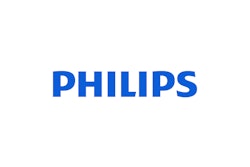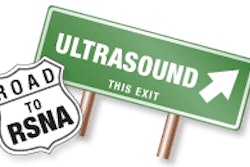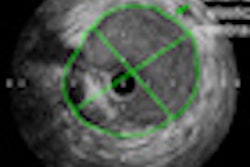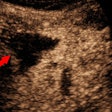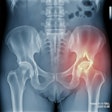Monday, November 29 | 8:55 a.m.-9:05 a.m. | VG21-02 | Room E353A
In this Monday morning presentation, researchers will present a technique using dynamic contrast-enhanced ultrasound to assess the response to chemotherapy in patients with liver cancer.There are many options for treating patients with colorectal liver metastases, but there is also a paucity of options for assessing early response to treatment, as Response Evaluation Criteria in Solid Tumors (RECIST) is usually evaluated every three months.
At the same time, some of the newer chemotherapy agents that target tumor vasculature, such as bevacizumab, may not lead to noticeable tumor shrinkage in the first few weeks, according to presenter Thomas Gauthier, director of clinical research at Philips Healthcare of Andover, MA.
Gauthier and colleagues saw dynamic contrast-enhanced ultrasound as a possible tool to assess hepatic perfusion index, defined as the ratio of hepatic arterial to portal venous blood flow (DCE-HPI). They also measured treatment response using traditional RECIST criteria.
The researchers applied the technique in a group of 64 patients, consisting of 25 subjects with untreated liver malignancy, 14 patients whose liver malignancies had been treated, five subjects who were pre- and post-therapy, and 20 healthy controls.
They found that compared with healthy controls, DCE-HPI levels were significantly elevated in the group with untreated liver malignancies, while DCE-HPI levels were reduced in patients who had responded to treatment compared with the untreated group.
The researchers believe that if their technique is proved to be robust and reproducible, it could be a low-cost and less invasive alternative to contrast-enhanced MRI and CT for testing early therapeutic response.




